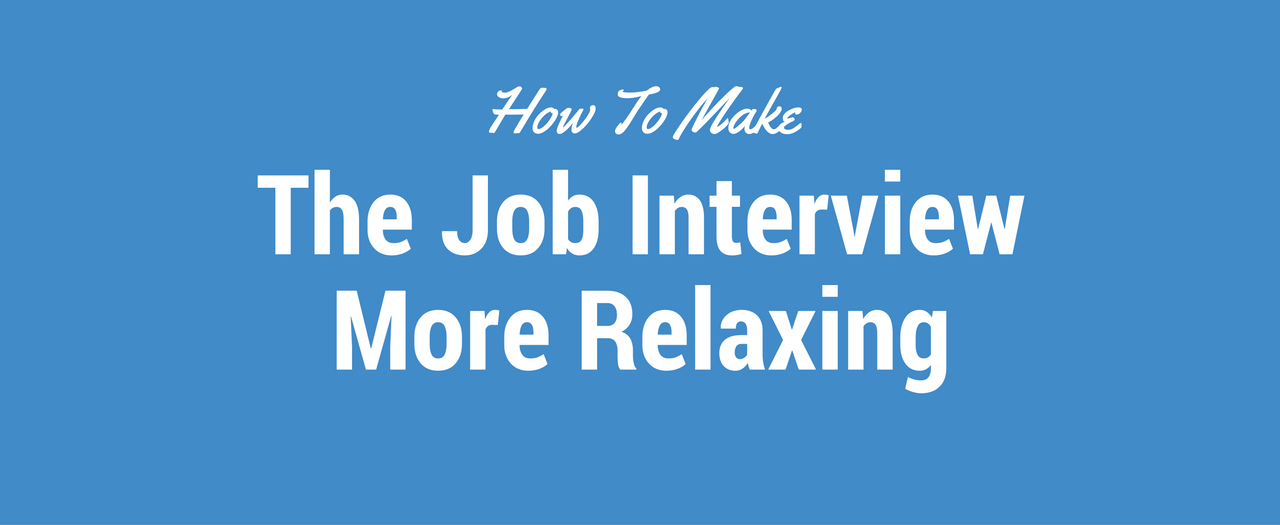A job interview can be nerve-wracking for people on both sides of the equation. Job seekers worry they won’t get the job. Even if they have the perfect resume, they can’t manage to stop fidgeting or rambling on during the interview. And that anxiety prevents you from getting an accurate idea about what the candidate is really like.
Sitting through interview after interview can frustrate you and make you wonder whether or not you’ll ever find the right candidate. That stress distracts you and keeps you from giving job candidates your full attention.
So what can you do to make the whole process a little more relaxing? Here’s advice from recruiting and hiring experts on how to put both you and candidates at ease during the job interview:
Find a quiet, but informal area.
The greatest advantage to having a relaxed interview setting is that it tends to make interviewees more relaxed and open. This allows you to get to know their character better without having to peel through the layers of poise and etiquette.
The best way to achieve this type of environment is to conduct the interview somewhere informal. Find a quiet spot out of high-foot traffic where the candidate can have a calm, uninterrupted conversation with you.

Brad Stultz, Human Resources Coordinator, Totally Promotional
Remind them you’re human, too.
I’ve found that giving some of my background and not immediately laying on the pressure has helped candidates feel more at ease. It’s like we’re both humans; we both have careers and we both know things the other doesn’t. It doesn’t have to be the hard sell or hard questions first and upfront.
Of course, I want candidates to come in knowing their stuff, but I also want to get a sense of who they are as people. It’s hard to do that if the environment is too stuffy. Our office is chock full of snacks and interesting beverages and we’re a startup so no suits here. That really helps people relax.

Rashmi Melgiri, Co-founder and COO, CoverWallet
Share a funny, personal story.
I like to break the ice by sharing my personal experience on what I thought was the worst interview of my life.
I was a first-year lawyer and I interviewed at one of the largest, most prestigious firms in my geographic area. Upon arriving and parking my car in the garage, I stepped in an open can of sardines and spent the next 15 minutes trying to rid my interview shoes (I only wore these heels for interviews) of the sardine smell.
Needless to say, as nervous as I was about the stench, I managed to toughen it up, nail the job interview, and get the job offer. Job seekers always like this story because it is real, and provides good comic relief for them to feel at ease in the interview.

Wendi Weiner, Career Coach, The Writing Guru
And what about recruiters who feel off their game because they’re overwhelmed or on edge and it’s affecting the job interview? Here’s what the experts say about that:
Give yourself time to think.
Remember, you are in charge of these. You shouldn’t be interviewing too many people, that is how mistakes are made. Set up a few interviews a day for two or three days with nothing after. If you cannot find a candidate in that pool, you can do the same again. If there is no suitable candidate in the second pool, then your requirements or pre-screening process needs to be changed.

David Retske, Co-owner and Engineering Manager, The 3D Connectors
Keep the hiring managers in the process.
It’s really helpful to involve hiring managers in the process. I think this assists with not getting overwhelmed and ensuring that you’re on the right track for pushing forward the right candidates.
I like keeping an open dialogue with the hiring managers and letting them into my process. We discuss the type of candidates that are coming through and also what steps each is at in the recruiting process. This allows for collaboration and trust between the hiring managers and myself and allows them to feel involved.

Ariel Lopez, HR Manager, Geek Powered Studios
Focus on the task at hand.
Remember each person is a person — try to be focused on the person in front of you and not your to-do list. Most of my interviewing experience was set up without prior warning, so I learned to have conversations and ask the questions I needed to know to help the company make hiring decisions without making it feel rote or boring.

Lisa Vento Nielsen, Founder, The Next Stage
—











